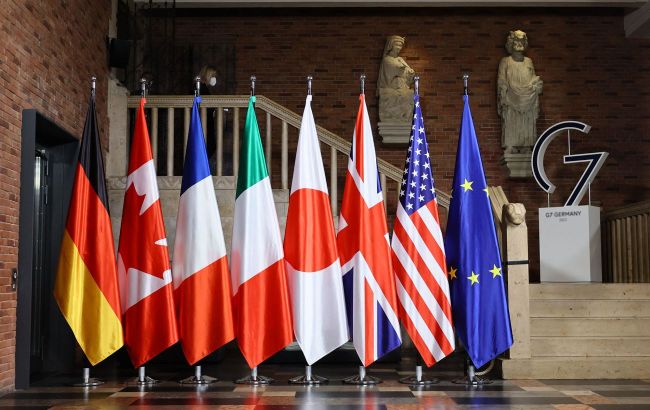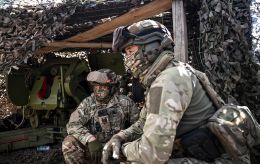G7 no longer considering full confiscation of Russian assets, other options still on table - FT
 Photo: The G7 is no longer considering the idea of confiscating Russian assets (Getty Images)
Photo: The G7 is no longer considering the idea of confiscating Russian assets (Getty Images)
The G7 countries are no longer considering a complete confiscation of Russian assets. The G7 is looking for less radical options for using Russian funds in favor of Ukraine, according to the Financial Times.
G7 representatives informed the media that confiscating Russian assets is no longer on the agenda. Instead, they are looking for alternative ways to obtain funds from frozen assets.
One of the ideas was proposed in February by Belgium. The Euroclear depository holds about 190 billion euros of the Russian central bank's reserves, which are proposed to be used as collateral for debt financing for Ukraine. But this idea is risky, so European countries oppose it.
In April 2024, the United States worked out another initiative to provide financing for Ukraine through a loan or bond on the security of future profits from frozen assets.
The US believes that this will provide up to $50 billion for Ukraine. This does not carry the same risks as the Belgian idea.
The main problem of the European plan is that Ukraine needs money now. Additionally, if the war ends soon, it raises the question of what to do with the funds. The money received as collateral for the expected decade-long revenues must be backed by state guarantees.
“If there is ever a peace negotiation and Ukraine decides to participate, there might be a situation where Russia demands its frozen assets back and in exchange agrees to make territorial concessions to Ukraine. You can’t do that if you’ve already mortgaged those assets,” says one German official.
Confiscation of Russian assets
Ukraine calls on its partners to confiscate Russian frozen assets. However, this issue is complicated. Some countries say that there is no legal basis to confiscate Russian assets and transfer them to Ukraine.
Europe has proposed transferring profits from frozen Russian assets to Ukraine.
The United States has proposed to confiscate $300 billion of Russian assets, but the plan has not been agreed upon yet.

